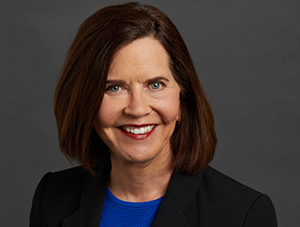Cardinal Health MarketSM
The legacy Cardinal.com Medical Ordering site has been replaced with Cardinal Health MarketSM, a new product experience designed with you in mind.

By Heidi Hunter, President, Cardinal Health Specialty Solutions
Over the course of this Women’s History month, I’ve read several articles about the many great contributions women have made to science, technology and healthcare – and I’ve been struck by how many of them didn’t receive appropriate recognition for their work. Here are just a few examples:
We’d like to think these are just stories from a bygone era when women’s talents and accomplishments were not seen as equal to men’s. We’d like to believe that in today’s society, where women have risen to serve in the highest seats of government and business, it would not be thinkable for a man to be given credit for a women’s achievements.
But women know better.
I expect most women in corporate America have had the experience of presenting an idea in a meeting and having it overlooked or disregarded, only to have a man repeat the idea and have it praised by colleagues. Sadly, this phenomenon is such a common occurrence that a term has been coined for it: hepeating. And it’s one of many ways that women’s contributions in the workplace are sometimes diminished.
I’m not saying that we haven’t made progress. On the contrary, we’ve come leaps and bounds from where we were a few decades ago when I entered the workforce. Many companies – including Cardinal Health, I’m proud to say – have made substantial investments to create an equitable employment climate where women are paid, developed and promoted on par with their male counterparts.
Yet even with this progress, inequities for women still exist. Unconscious gender bias continues to result in situations where men have more opportunities and advantages in the workplace – and where women’s contributions continue to gain less recognition than men’s.
There’s not a simple solution to this problem. But one thing that can help women receive credit for their accomplishments is a network of advocates. Advocates can play a critical role in the advancement of women because advocates not only recommend and endorse others, they also proactively speak out on behalf of their colleagues and help to create new opportunities.
Advocacy is a tool that can be used by anyone. If you are people leader – whether a man or a woman -- you can be a champion for women on your team, ensuring that their accomplishments are visible and recognized. You can also make sure that women on your team have a voice in meetings and are identified for the same development opportunities as their male colleagues.
If you are a woman, you can take steps to ensure your achievements are recognized by cultivating not just one or two, but a whole army of advocates who can serve as your champions in different settings. Building a network of advocates takes thoughtful and intentional efforts – and you must consistently deliver strong performance to demonstrate to your advocates that they can feel confident being a champion for you. Of course, you still need to develop your own strong voice in the workplace to make certain your contributions are recognized -- but advocates can amplify your voice and help to ensure that your achievements are seen by leadership.
As more women build networks of advocates and become advocates for other women, I hope we can look forward to a day when the history books are full of stories about great women who were recognized and rewarded for all of the great things they accomplished.
As President of Cardinal Health Specialty Solutions, Heidi Hunter leads the specialty health care business that helps providers and pharmaceutical companies optimize business success and drive improved patient care. Hunter is an accomplished global health care leader with deep experience in innovation, development and commercialization of specialty pharmaceuticals.